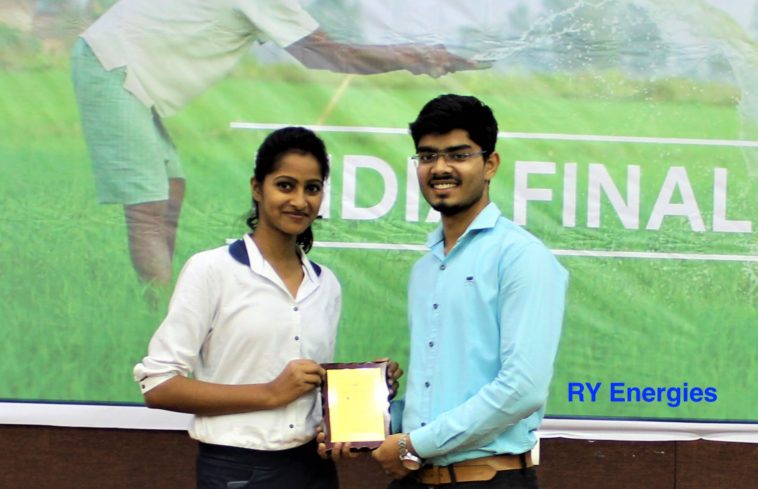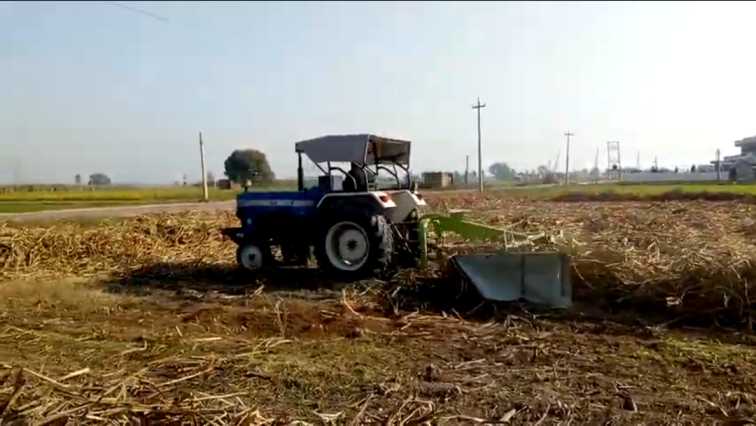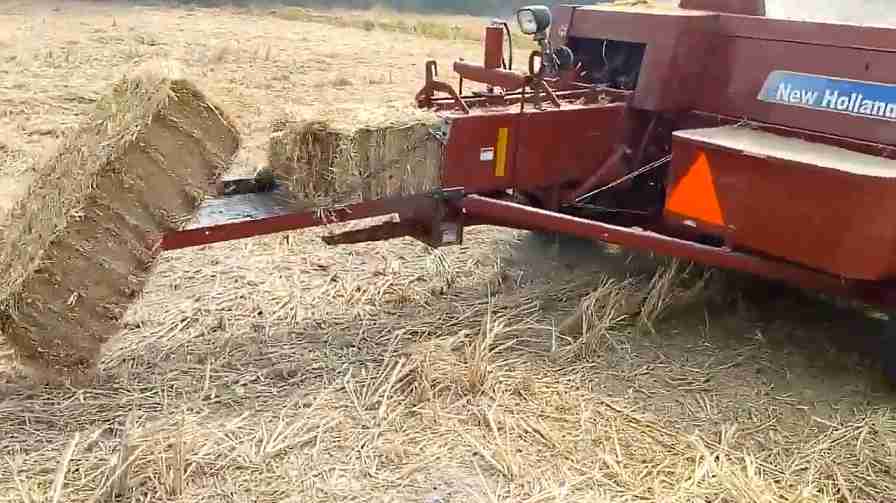The Problem: Causes of Air Pollution
“Pure air in Delhi”, certainly sounds like a dream for every Delhite. Wearing face masks even before the spread of the disastrous Covid-19 was a new normal in Delhi.
Factors like vehicular pollution, construction activities and industrial emissions always contributed to the deterioration of the air quality in NCR but the air pollution level soars to hazardous levels when FARMERS of major agrarian states of the country start putting their FARMS ON FIRE.
The FARMERS PROBLEM
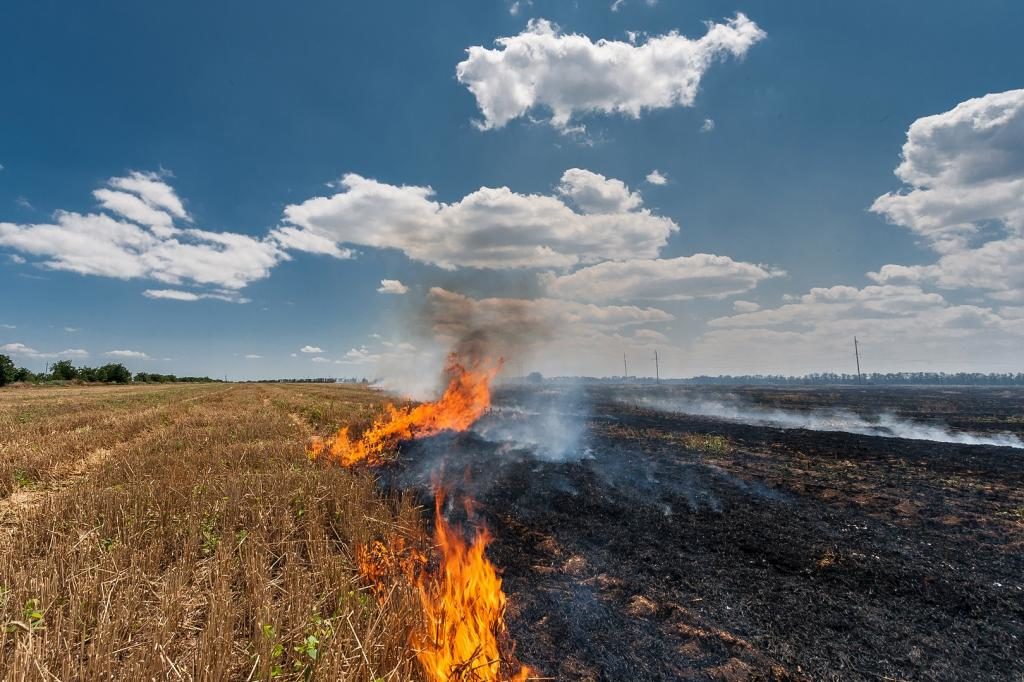
Every year, after harvesting the paddy crop, farmers are left behind with the 1-1.5 feet standing stubble on the ground which creates much hassle for them. In order to start preparations for the next crop cycle, they have a very short window of only 15-20 days to get rid of the straw, and thus have to burn it due to lack of other viable alternatives. Not at all the best but the only option farmers have to clean their fields!
The Repercussion Delhi Faces
This not only creates problems for them but also results in covering the entire Delhi NCR with a thick blanket of smog and making it a gas chamber. The Air Quality Index (AQI) was literally off the charts in November 2019. They hit the highest mark of 999 as sensors couldn’t read the data beyond that.
It is estimated that approx 35 million tonnes of crop residue is burnt alone in Punjab and Haryana. The quantum of the problem can be estimated from the fact that each tonne of crop residue on burning releases around 3 kg of particulate matter, 60 kg of CO, 1,460 kg of CO2, 199 kg of ash and 2 kg of SO2 in the environment. It is also estimated that the economic cost of exposure to air pollution from crop residue burning is USD 30 billion or nearly Rs 2 lakh crore annually for the three north Indian states of Punjab, Haryana and Delhi. Despite imposing several penalties and regulations by the states, the conventional practice of stubble burning has not been put to end so far.
The possible solutions for the hazardous problem!
Not only one, but there are several possible ways to get rid of the straw and clean the fields instead of burning it.
- There are various technologies that have been developed for paddy straw management where this agro residue can be used as a useful biomass resource and could be converted into a value-added product, for example, briquettes, pellets, paper & pulpboard, sustainable building materials, packaging materials, etc.
- Also, paddy straw is being used as a fuel in independent power plants and cogeneration plants.
But the major challenge faced by these industries lies in the collection mechanism of the straw from small and fragmented farms. There exists the problem of lack of a reliable and integrated collection and supply mechanism for utilisation of this crop residue. Due to viability issues arising from the biomass supply end, several biomass plants across North India have been shut down.
RY ENERGIES: THE STARTUP contributing to a cleaner environment!
Determined to fix the problem, the then 2 Delhi University graduates and social entrepreneurs envisioned a sustainable business opportunity and embarked on the journey of entrepreneurship to fill the crucial loophole in the biomass supply chain market.
RY Energies, a DPIT recognised startup, is a social impact venture working in the domain of renewable energy with a vision “to lead the development and deployment of commercially viable and sustainable technology solutions to make the world a better place to live”.
How RY ENERGIES is making it possible
By leveraging new-age technologies, RY Energies aims to become India’s leading tech-enabled biomass supply chain company. They create a win-win solution for farmers, environment and biomass users and focus on the holistic development of the rural economy.
- They process crop residues, like paddy straw & sugarcane trash, into rich quality biomass resource, and supply it to the end-users to enable its utilisation for productive uses, like energy and biofuel generation, and provide them with the convenience and assurance of year-long availability of quality biomass fuel and enable them to reduce the downtime of their respective units.
- Also, in the process, they enable an increase in farmers’ income by timely clearing their farms in a barter-model and boost the rural economy by creating employment and entrepreneurial avenues for rural people.
- Currently processing paddy straw and sugarcane trash in the regions of Punjab, Haryana and Uttar Pradesh, the venture is focusing on diversifying into other crop residues and expanding its geographical presence in other regions of the country and overseas markets as well where similar farming practices are followed.
Nonetheless, their endeavours towards a cleaner and greener environment are clearly visible as they are preventing the open burning of crop residue by enabling their productive uses.
Also read Stubble Burning-The best solutions to reduce the menace caused by it
IMAPCT CREATED SO FAR
One must rethink if her/his solution is not positively impacting others’ lives, is it even a solution to pursue!
Driven by the values of sustainability and community development, their initiative has been able to create a significant impact in the lives of their stakeholders and the general public. By offering the solution and after commercialising their operations successfully in 2019, they have been able to enable the generation of 1,085 MWh of renewable energy units, reduce harmful carbon emissions by approx 5,77,000 kg and create 36 employment and 6 entrepreneurial opportunities.
The team behind the idea and their journey
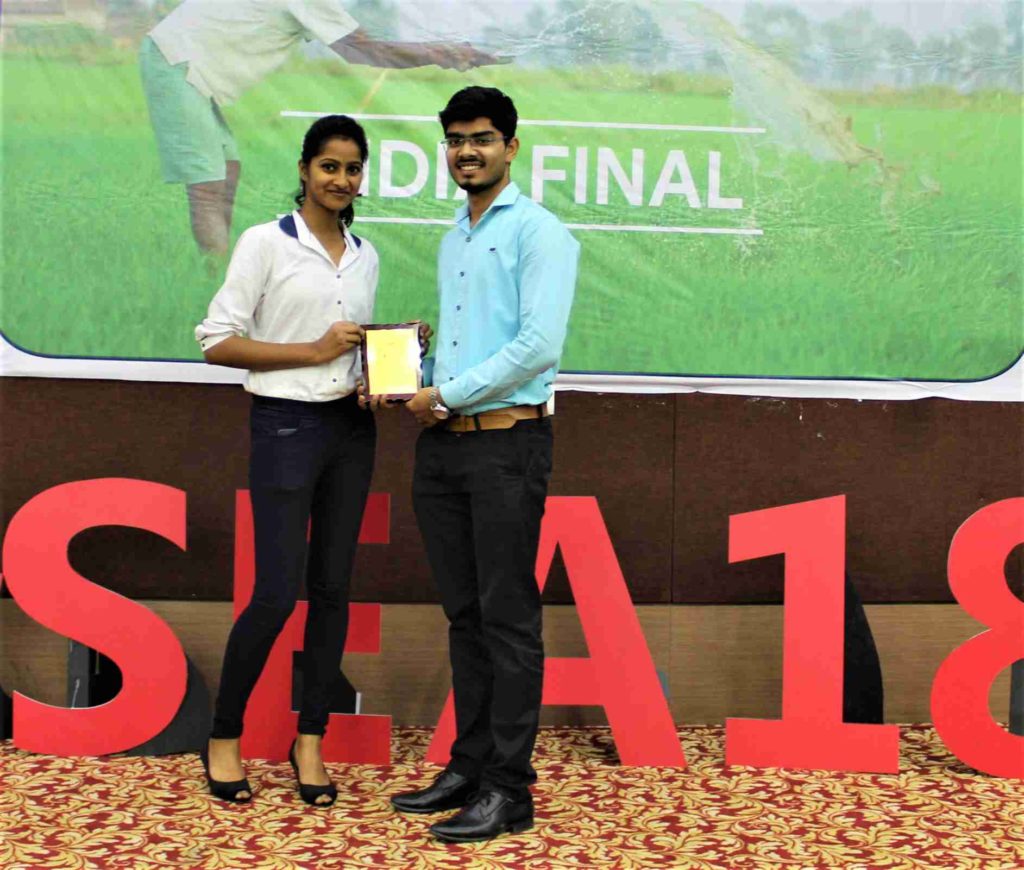
Aru Mangla, a BMS graduate from Shaheed Sukhdev College of Business Studies, and Aayushi, a BBE graduate from Dr Bhim Rao Ambedkar College, co-founded the organisation under the mentorship of experienced professionals at SIIF, a Delhi Govt funded incubation centre. With significant industry experience in the biomass sector, the team stands out to be competent enough to execute the idea. They have gained deep sector-specific knowledge by performing thorough on-ground market research and conducting successful pilot projects and also have built a significant network with the key resources in the industry. The prior experience of working in rural areas in the renewable energy domain provides them with a better understanding of the nature and dynamics of such markets.
Stubble burning being a drastic problem and the biomass sector being in a nascent stage, more impactpreneurs should be encouraged to become a part of this ecosystem and contribute towards a cleaner environment.


